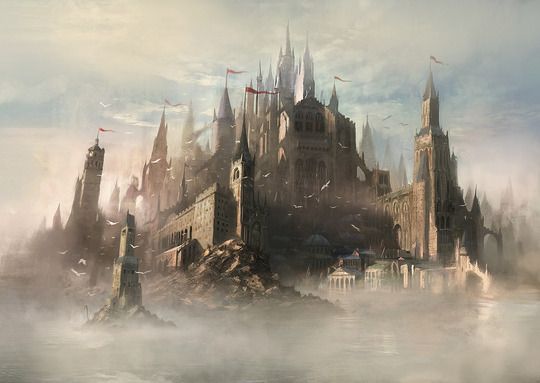President Barack Obama waves after speaking at the Rodon Group, which manufactures over 95% of the parts for K'NEX Brands toys, Friday, Nov. 30, 2012, in Hatfield, Pa. The visit comes as the White House continues a week of public outreach efforts, while also attempting to negotiate a deal with congressional leaders. (AP Photo/Susan Walsh)
President Barack Obama waves after speaking at the Rodon Group, which manufactures over 95% of the parts for K'NEX Brands toys, Friday, Nov. 30, 2012, in Hatfield, Pa. The visit comes as the White House continues a week of public outreach efforts, while also attempting to negotiate a deal with congressional leaders. (AP Photo/Susan Walsh)
House Speaker John Boehner of Ohio speaks to reporters on Capitol Hill in Washington, Thursday, Nov. 29, 2012, after private talks with Treasury Secretary Timothy Geithner on the fiscal cliff negotiations. Boehner said no substantive progress has been made between the White House and the House" in the past two weeks. (AP Photo/J. Scott Applewhite)
President Barack Obama gestures as he speaks at the Rodon Group, which manufactures over 95% of the parts for K?NEX Brands toys, Friday, Nov. 30, 2012, in Hatfield, Pa. The visit comes as the White House continues a week of public outreach efforts, while also attempting to negotiate a deal with congressional leaders. (AP Photo/Susan Walsh)
President Barack Obama waves as he arrives before speaking at the Rodon Group, which manufactures over 95% of the parts for K?NEX Brands toys, Friday, Nov. 30, 2012, in Hatfield, Pa. The visit comes as the White House continues a week of public outreach efforts, while also attempting to negotiate a deal with congressional leaders. (AP Photo/Susan Walsh)
President Barack Obama looks a rollercoaster with from left, K'Nex inventor Joel Glickman, robotics expert Joao Silver, and chief executive officer Michael Araten and during a visit to th K'Nex factory in Hatfield, Pa. on Friday, Nov. 30, 2012. Obama spoke at the toy company about how middle class Americans would see their taxes go up if Congress fails to act to extend the middle class tax cuts. (AP Photo/The Philadelphia Inquirer, Michael S. Wirtz) PHIX OUT; TV OUT; MAGS OUT; NEWARK OUT (for all of Their spot photos. Outs include 19 or so papers from N.J. and P.A. MAGS OUT; NEWARK OUT
WASHINGTON (AP) ? One month before the deadline, negotiations between President Barack Obama and Republicans to save the economy from a plunge over the fiscal cliff are still in the throat-clearing stage. Serious bargaining is on hold while the two sides vie for political leverage.
Deal or no deal, nothing is likely to become clear until far closer to the year-end deadline, when the lure of getting away for the holidays will sharpen the focus of negotiators.
"There's a stalemate. Let's not kid ourselves," House Speaker John Boehner, R-Ohio, said Friday, punctuating the end of a week of political theater by divided government. "Right now we're almost nowhere."
He spoke as Obama all but called Republicans heartless louts from a Charles Dickens story. Their failure to pass an extension of middle class tax cuts would amount to a Christmas "lump of coal" for millions, Obama said in Hatfield, Pa. "That's a Scrooge Christmas," added the recently-re-elected president, who claims a voters' mandate to extend existing tax cuts for all but upper incomes.
Boehner, too, claimed a mandate after voters renewed the House Republican majority on Nov. 6. But the speaker's political hand was weakened ? witness his postelection announcement that the GOP would put revenues on the bargaining table. His control seems to have eroded further in the weeks since, as a smattering of the GOP rank and file let it be known they could support the president's tax plan under the right circumstances.
"Rate increase, if the package includes significant entitlement reform that gets you to $4 to $6 trillion (in deficit savings) over 10 years, I would vote for that," a retiring Rep. Steve LaTourette, R-Ohio, told reporters on Friday.
Rep. Charles Bass made similar comments. "If it gets us past the fiscal cliff and the president is willing to consider meaningful savings in entitlements, it's a legitimate solution," said the New Hampshire lawmaker, who was defeated for re-election this fall.
Yet the speaker also made a little-noticed move this week to shore up his bargaining position.
He issued a statement noting that Senate Democrats are threatening to weaken the Republicans' ability to block legislation in their chamber in the new Congress that convenes in January.
"Any bill that reaches a Republican-led House based on Senate Democrats' heavy-handed power play would be dead on arrival," he warned.
In the talks to date, Democrats have declined to identify a single spending cut they are willing to support, while Republicans avoid specifics on revenue increases they would swallow.
Once each side moves beyond opening gambits, Republicans will have to decide whether they are willing to raise income tax rates on upper incomes, as Obama wants, or hold fast to closing loopholes as a means of producing increased tax revenue.
Boehner condemns raising rates, yet didn't flatly rule it out during the day. It was a step Majority Leader Eric Cantor, R-Va., took. "We don't want to increase tax rates, we're not going to increase tax rates," he told reporters.
For their part, Democrats will decide how much savings to pull from benefit programs like Medicare, Medicaid and possibly Social Security without cutting guaranteed benefits, a line they vowed not to cross in earlier budget negotiations.
Obama's opening proposal, delivered to Boehner and other Republicans by Treasury Secretary Tim Geithner on Thursday, calls for $1.6 trillion in higher taxes over a decade, hundreds of billions of dollars in new spending, a possible extension of the temporary Social Security payroll tax cut and enhancing the president's power to raise the national debt limit.
The new federal revenue would include $950 billion generated by raising taxes on families with incomes over $250,000 and by closing certain tax loopholes by the end of this year, according to administration officials who described the offer Friday only on condition of anonymity. The remainder would be achieved through an overhaul of the tax system next year and would not become effective until 2014, said the officials, who were not authorized to provide the details by name.
Obama is seeking new spending to help the unemployed, homeowners whose property's value is less than their mortgage, doctors who treat Medicare patients and wage-earners.
In exchange, the president would back cuts of an unspecified amount this year, and savings of as much $400 billion from Medicare and other benefit programs in 2013.
Republicans said they were surprised at the plan, and Democrats wondered aloud why.
"Each side said they'd submit a down payment. We have. Our preference is revenue. What is theirs?" said Sen. Chuck Schumer, D-N.Y.
Republicans have an opening offer of their own, in line with their conservative anti-tax views, much as Obama's is designed to solidify his own political position. While agreeing to new revenue, GOP lawmakers want to extend expiring income tax cuts at all levels, including the top brackets. They also want to raise the age of eligibility for Medicare and curtail future cost-of-living adjustments for Social Security and other benefit programs. The same adjustment would raise revenue for the government by making a change in annual adjustments of tax brackets.
"We're the only ones with a balanced plan to protect the economy, protect American jobs and protect the middle class from the fiscal cliff," Boehner said on Friday.
That was a jab at Obama, who campaigned for re-election advocating a balanced approach to avoiding the fiscal cliff that combines higher taxes on the wealthy with spending cuts.
Said the president: "In Washington, nothing's easy, so there is going to be some prolonged negotiations."
___
EDITOR'S NOTE ? David Espo is AP's chief congressional correspondent. Associated Press writer Alan Fram contributed to this report.
Associated PressSource: http://hosted2.ap.org/APDEFAULT/386c25518f464186bf7a2ac026580ce7/Article_2012-11-30-Fiscal%20Cliff-Analysis/id-d44ee5ca2c1f48c29d3a24802ae189f6
gizmodo cnet iPhone 5 9-11 Chris Brown Tattoo Innocence of Muslims Clara Schumann


.jpg)
